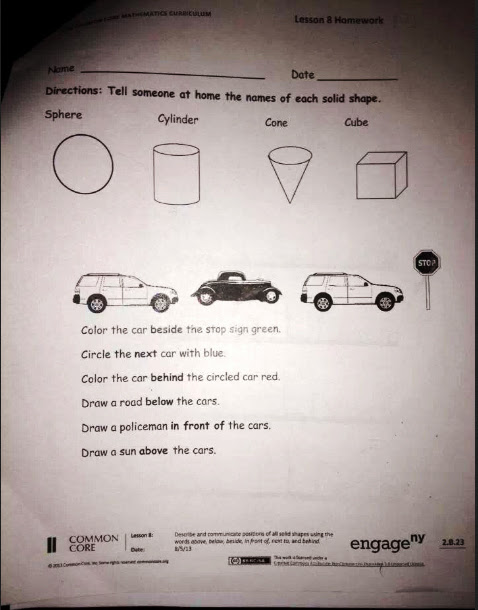I still remain a staunch anti-school mom, so it has been hard for me to justify fighting against Common Core, since in my heart I truly believe that even the previous means of educating our children was not in their best interests. And in my arguing against CC some may take it as acceptance of public education as it has been till now.
Not the case.
My concerns about schooling are wonderfully described by John Taylor Gatto in his last book, Weapons of Mass Instruction wherein he writes:
Think of school as a conditioning laboratory, drilling naturally unique, one-of-a-kind individuals to respond as a mass, to accept continual ennui, envy and limited competence as only natural parts of the human condition. The official economy we have constructed demands constantly renewed supplies of leveled, spiritless, passive, anxious friendless, family-less people who can be scrapped and replaced endlessly, and who will perform at maximum efficiency until their own time comes to be crap; people who think the difference between Coke and Pepsi, or round hamburgers versus square ones, are subjects worthy of argument.
I truly feel that school is not the best place for our kids and that it is filled with problems. Some of the issues surrounding the Common Core exacerbate the problems though, to the point that it's worth spending my time to keep abreast of them, and occasionally posting here to help educate others.
Admittedly there are days when I think that since I am opposed to the idea of mass schooling in general that I should just resign myself to the reality of what it is and accept that if we use it we need to work within the confines of it. And so I ignore my Google Updates, the Facebook groups and the tweets and blogs, and don't post here for a while. But then something makes it through and wakes me up to the overt problems that CC is causing and I start reading and posting again.
I hate that both of my kids love school and would have a fit if I pulled them out to homeschool again, and that they ended up entering school at a time when all these "reforms" are happening and their privacy is being irretrievably eroded. But I remain a firm believer in unschooling, and that means putting my children firmly in charge of their own educations. So here I am, taking it day by day.








